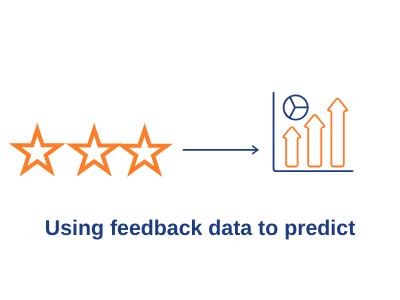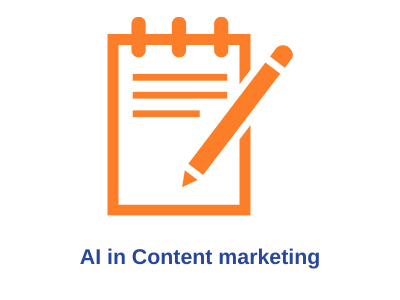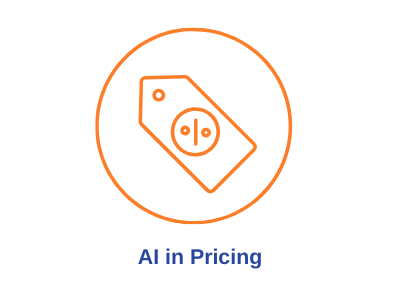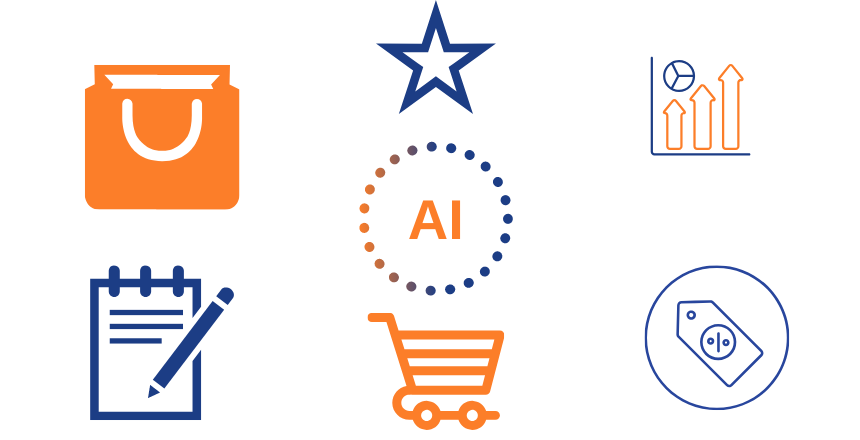For every business, a well-defined marketing strategy is at the core of the growth process by generating revenue. There are several applications of Artificial Intelligence that can help in building good marketing strategies. To create a good marketing strategy, there is a need for volumes of data, which takes lots of time to collate manually. According to the recent study of globenewswire.com, 65% of marketers believe that AI and Ml applications are important for collecting data.
Below are the top 8 applications of Artificial intelligence in marketing:
The product recommendation system is an information filtering system based on buyers’ interests, behavioral history, and past purchases. AI-powered product recommendation system can show product suggestions, where-after buyers can quickly shortlist the products that interest them.
For example, Amazon prime has a product recommendation system that knows a users’ interests, like watching adventure or horror movies and accordingly, can suggest a list of adventure or horror movies when the user logs into Amazon prime.
Another example is Amazon e-Commerce platform that has a product recommendation system that analyzes past purchases of a user and accordingly suggests similar products or accessories. In other words, according to the user online preferences/ behavior, the product recommendation system will suggest related products or items.
Based on these product recommendation suggestions, customers might react and after that, be converted into a sale.
AI product recommendation system is especially useful for digital commerce businesses to increase their sales.
Artificial intelligence can predict future outcomes. These outcomes can help marketers in effectively planning their marketing strategies.
To do data predictions, Artificial Intelligence applications are needed to get past consumer behavioral data like their habits, preferences or interests and shopping history on the business’s e-commerce site.
 For example, if a business wants to know which products are getting more positive or negative feedback – so that they can better predict future performance of products -an application of AI called Sentiment Analysis can help in such predictions.
For example, if a business wants to know which products are getting more positive or negative feedback – so that they can better predict future performance of products -an application of AI called Sentiment Analysis can help in such predictions.
Sentiment analysis extracts human expressions like happy, anger, fear, sorrow, etc. and can categorize them as positive/ negative/ neutral vis-a-vis customer satisfaction from feedback provided by customers.
The physical salesperson can identify facial expression of the customer, like how they are reacting while showing products to them. Based on these facial expressions, the physical salesperson can judge the interest or likelihood of the customer purchasing a certain product. Based on the customer feedback machine learning applications can identify which products are providing best customer satisfaction.
Based on this information, Machine Learning applications can analyze the products and make future predictions for e-commerce stores.
Customer churn is the percentage of customers who stopped using the products and services of a particular business in a certain period.
Customer churn rate is the number of customers lost divided by total customers at the beginning of the period.
Identifying customer churning rate is more important in marketing strategy. If the churn rate is more, the business is at a loss. To rectify this, predicting customer churn is important for every business.
For example, if a certain customer visited the e-commerce site and purchased products twice in a month for up to 6 months continuously. Later, the customer purchased products irregularly. And after a few months, the user stopped purchasing. For an individual marketer to analyze this customer purchase history will take a lot of time to find out why the user stopped purchasing. In this case, machine learning applications can gather past customer purchase data, analyze it and quickly respond to marketers.
Artificial Intelligence or Machine Learning helps in predicting customer churn based on the behavioral data gathered from their past history.
 Artificial Intelligence can also help in content marketing. AI can predict content performance, like which content can perform more and which content might under-perform. AI can help in content recommendation or content personalization. The content recommendation using AI shows the suggested content based on the user’s past visits and behavioral analysis
Artificial Intelligence can also help in content marketing. AI can predict content performance, like which content can perform more and which content might under-perform. AI can help in content recommendation or content personalization. The content recommendation using AI shows the suggested content based on the user’s past visits and behavioral analysis
 Artificial Intelligence can analyze huge amounts of online advertising data. Based on this analysis Artificial Intelligence can predict the performance of the ad. Artificial Intelligence can also deliver more personalized ads to target customers.
Artificial Intelligence can analyze huge amounts of online advertising data. Based on this analysis Artificial Intelligence can predict the performance of the ad. Artificial Intelligence can also deliver more personalized ads to target customers.
 Pricing decisions are essential for every company. Good pricing decisions generate profits. Artificial Intelligence can help in building a pricing strategy by analyzing historical and competitive data.
Pricing decisions are essential for every company. Good pricing decisions generate profits. Artificial Intelligence can help in building a pricing strategy by analyzing historical and competitive data.
For example, e-commerce sites want to generate more sales during the festival season. Artificial intelligence helps in pricing strategy based on past customer preferred pricing options, offers. Setting the right price and offers could generate more sales for the e-commerce site. Moreover, AI helps in sending automated emails with offers to the customers and encourages them to purchase the products.
Generating quality leads is at the core of any marketing strategy. Machine Learning algorithms can help in identifying current and new customers who are likely to convert into sales. The machine learning algorithms can track the data of website visits, email opens, clicks and analyze this information and predict which customer is likely to convert. Moreover, through social media channels the machine learning applications can track the data of post like, engagement with the ads and analyze this information and predict which customer is likely to convert.
An attribution model is a structure for determining which touchpoint receives credit for the conversion. The buyer’s journey has multiple touchpoints. For example, if the user visits the site after seeing a re-targeted search, it constitutes two touchpoints. Each touch point will be typically given a value by the marketer.
With multiple touchpoints in the buyer’s journey, it is very difficult to find the actual final touchpoint in that generated attribution model. Applying Artificial Intelligence and Machine Learning in the attribution model, it becomes easy for the marketers to discover the actual touchpoint in the buyer’s journey. Furthermore, it becomes easy to identify which re-targeting ad is generating maximum returns.
As seen from the above top 8 applications of Artificial Intelligence, several distinct metrics could be defined and monitored to help in building an effective marketing strategy, especially for digital or e-commerce organizations.

